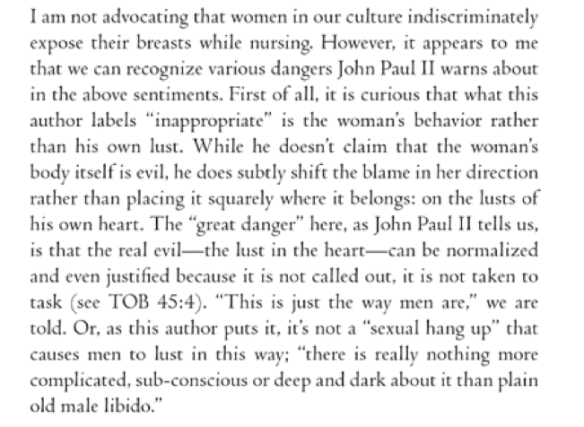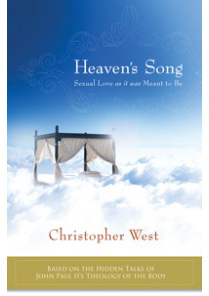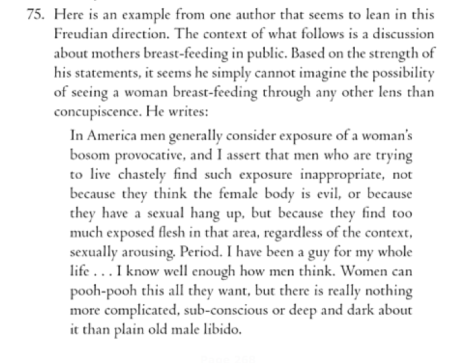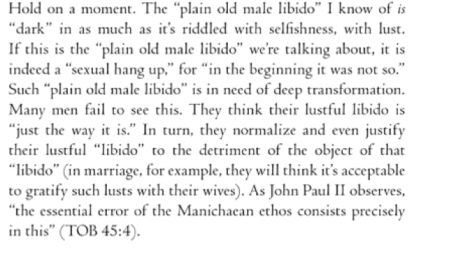 Christopher West has quoted me in his new book, At the Heart of the Gospel: Reclaiming the Body for the New Evangelization.
Christopher West has quoted me in his new book, At the Heart of the Gospel: Reclaiming the Body for the New Evangelization.
Here is West’s own description of the book which he relates to the debate that has rippled across the internet and to which this blog has contributed:
In the midst of these conversations, my work as a popularizer of John Paul II’s teaching has been the subject of some rather harsh critiques. During an extended sabbatical in 2010, I reflected prayerfully on the various challenges my work has received, seeking to glean as much as possible from what various authors were saying. This book is the fruit of those reflections (2).
Kevin O’Brien of the Theater of the Word Incorporated has posted on the subject of West’s critique of my statements. The source of those statements was a guest post I wrote for Dawn Eden. West does not cite his source, so his readers have no ability to assess my statements in their context or to familiarize themselves with my overall line of thought.
I have commented on Kevin O’Brien’s post, so you will find there the substance of my response. Below the images of West’s book in this post I will summarize.

I will summarize first by stating what I think West and both agree on:
- The body and sex are good and holy as God intended them from the beginning.
- Modesty is not simply a matter of hiding the body of the desirable, but also of the interior transformation of the one who desires.
- Sexual desire and pleasure in and of themselves are very good.
- Concupiscence in respect to sexual desire and pleasure is never entirely absent.
- An exalted view of the body and sexuality is helpful to developing a life of chastity.
- Repression, prudery and body hatred are counterproductive to living a life of chastity.
- Lustful desires are always sinful.
Before I state the points on which we disagree I need to make a clarification about what I understand to be West’s position. When he discusses issues of modesty there are two things happening. Even if he is only at that moment suggesting a course of action appropriate to a man’s dealing with incidental exposure to a woman’s values, beyond this West believes that sexual values in and of themselves are the appropriate objects of spiritual fascination. It is not simply a matter of dealing with potential temptations in the most appropriate and spiritually developed way. It is a matter of subduing concupiscence and concentrating on sexual values for their theological significance. This has tremendous import to West’s position.
 After all West speaks about the language of the body precisely in terms of sexual values. Those values, sexual desire, sexual pleasure and the conjugal act itself point beyond themselves to desire for unity with God, the bliss of heaven and the mutual self-giving of God and the soul. So when West suggests that we should have a holy fascination with the body and sex, as he does, for example in Heaven’s Song (notice the bed floating on the clouds), there is no question that West is advocating a holy rejoicing in the sexual values of the body, sexual desire and pleasure, and the conjugal act itself precisely in the incidence of a man’s exposure to a woman’s nakedness (not one’s spouse).
After all West speaks about the language of the body precisely in terms of sexual values. Those values, sexual desire, sexual pleasure and the conjugal act itself point beyond themselves to desire for unity with God, the bliss of heaven and the mutual self-giving of God and the soul. So when West suggests that we should have a holy fascination with the body and sex, as he does, for example in Heaven’s Song (notice the bed floating on the clouds), there is no question that West is advocating a holy rejoicing in the sexual values of the body, sexual desire and pleasure, and the conjugal act itself precisely in the incidence of a man’s exposure to a woman’s nakedness (not one’s spouse).
So here is where I disagree with West; I will express it in terms of my own position:
- The Theology of the Body offers no magic bullet. Consider that the sexual values of the body, sexual desire and pleasure and the very conjugal act are in fact good and holy. In view of this it is impossible to deny that a true and religious appreciation for such values, particularly in the presence of visual stimuli, is supposed to arouse sexual desire and pleasure. But the tendency to indulge such things in reference to a woman who is not one’s spouse is a function of concupiscence and is disordered. Specialized knowledge, namely, TOB, changes none of this.
- A holy appreciation for the sexual values of the body, sexual desire and pleasure and the conjugal act itself excited in conjunction with stimuli, provided by a woman not one’s wife, goes well beyond the theological, philosophical, and artistic expressions of John Paul II. This is the doctrine of West, not Blessed John Paul II.
- West & Co. are living in a dream world if they want to tell us on the one hand that our pure and holy fascination is precisely with sexual values insofar as they are the object of sexual desire and pleasure, and yet as we rejoice in such desire and pleasure we experience none ourselves. What exactly is a holy fascination with sexual values of real persons who are not one’s spouse, precisely because those values excite desire and pleasure, and which do not function under the influence of concupiscence and tend toward lust? This is not true mysticism. It is mystagogery—old fashioned, pagan sex mysticism.
- Stating plainly that there is an objective component to modesty is consistent with both Catholic doctrine and common sense. The sensory exposure to sexual values has an objective and per se normal and in se wholesome effect of the arousal of sexual desire and pleasure, and therefore, in reference to the body of someone not one’s spouse, is inappropriate insofar as the body of someone not one’s spouse becomes the object of sexual desire and pleasure. The realtime resolution of actual instances is a function of prudence. Sexual values are always present, whether or not there is a real infraction of objective modesty. The language of the body speaks eloquently fully clothed. I am not arguing for a modesty police, but I do advocate for solutions in which the man takes as much responsibility for his own reactions to what he considers immodesty as he would like a woman to take for the way she dresses. In the end no amount of modesty regulation will solve a man’s problem with lust.
- To suggest that there is an objective component to modesty does not put the blame on the woman. Some men, I am sure, think that it does. That is not, nor has it ever been my position. Assigning blame solves nothing, and it most often is unjust and uncharitable. However, if there were potentially blame to assign, say by some god-like knowledge, the inference would not be freudian. To suggest that there might be sexual motives behind the revelation of sexual values need not be based on the premise that everyone always acts for sexual motives. This is a non-sequitur.



If anyone’s interested, I wrote a kind of review of this book over at Catholic Lane. I must have missed that endnote cause I don’t remember it.
In my review I touch on some of the problems that West has with language. There are two possibilites here, the first is that West is coming from a dis-integrated vision and that’s reflected in his language, or else his thinking is correct but he is disordered in his use of language. For charity’s sake, I’m presuming the latter.
So I think West’s critics have grounds to object, but those criticism don’t necessarily imply West is thinking wrong per se. But I could be wrong. 🙂
I’ve noticed some strange talk about the body too. I don’t think it’s the isolated body where we perceive ‘sacred’ values, but more in the relationship of the two sexes to each other. And like you said, that doesn’t require nakedness. It doesn’t even require actual experience of sex (which is quite capable of even obscuring it). Anyway…you can check it out here:
http://catholiclane.com/christopher-west-refines-his-answers-but-questions-remain/
Father, in your #3, don’t you mean: “What exactly is a holy fascination with sexual values of real persons who are NOT one’s spouse, precisely because those values excite desire and pleasure, and which do not function under the influence of concupiscence and tend toward lust?”
I hope there is nothing sinful in a man looking at his wife’s body precisely because certain values incite desire. I tend to think a man doesn’t look at his wife’s knees when they are making love. Isn’t the whole issue that we are supposed to derive sexual desire in certain values in our spouse, and that’s exactly WHY we need to be careful with people who are not, since our desires tend to work willy-nilly and not be ordered towards their proper object?
This disorder is not that man finds breasts arousing or likes to look at them, but that he likes to look at those of someone not his wife, or at his wife as MERELY a sex object.
Mercury, correct. Thanks. I have picked up the typo.
I see that the typo change has not taken. I am unable to access the post right now. Please duly note the change until the problem with WordPress clears up.Thanks.In practical terms, I’m not sure what the big problem is here. Women don’t expose their breasts while nursing. There will be a scarf, shawl, blanket, etc. which will cover both mother and most of the child from the neck down. That at least has been my observation and it applies to the US. Other countries may have other standards of modesty, but I’ve always thought that women breast feeding is highly over-rated as a source of temptation for men.
kirthigdon @ February 8, 2012 at 9:29 pm
Not the essential issue. West quoted my statement out of context and did not even source the quote. See the original post.
In any case, the essential issue is not how “dangerous” exposure to breast feeding is, but whether there is a real objective component to modesty and why; why West minimizes the objective component and why this is a mistake.
Father Angelo,
For a man to be sexually aroused by the naked body of a woman other than his spouse is not disordered, it is a reflex, much like the doctor striking one on the knee to check your reflexes. Studies show that men are much visual when it comes to sexual arousal than are women. And, please define for us the difference between sexual desire and lust.
Father, I know you have heard it many times before, but it bears repeating. Why is a celibate man (a most unnatural way to live) such as yourself pontificating about sexual matters? I am telling you, unless you have lived with a woman for a number of years, you are not able to understand the dynamics of sexual intimacy between a man and a woman within a marriage. When I hear priests talk about sex, I am struck by the immaturity and naivete.
@angelo: Why is an immature and naive man such as yourself lecturing about sexual matters?
From the limited display of your logic, celibacy is merely the state of not engaging in sexual union, implying that marriage is nothing more than the state of having sex and an outlet for sexual gratification. Clearly, it is you who does not understand the dynamics of human sexuality – i.e. being male and female – and marital sexual intimacy. Such a demeaning comment to Fr. Geiger also reflects that you have no understanding of the intrinsic relationship between celibacy and marriage. It is precisely the holiness and goodness of marriage that makes celibacy (as a sacrifice) such a precious gift. To despise celibacy is to undermine marriage. Furthermore, celibate persons don’t so reductively define themselves, limiting their identity according to the use of their sexual faculties. Indeed, it would be most unnatural – i.e. contrary to human nature – to “label” celibate persons solely as those not engaging in sexual union, rather than persons who have consented to a unique call within the Lord’s plan for their lives, to a fruitfulness that those in the married state will not know, and to being a sign to the world of what we will experience in heaven. Finally, to suggest that celibacy is “unnatural” reduces persons (especially men) to animals, creatures who can’t live without satisfying the sexual urge. On the contrary, human persons naturally discern and choose – i.e. as part of human nature – how to satiate their appetites and desires, and such self-control sets us apart from animals.
These concepts obviously elude you, as well as their foundation in Scripture:
“Not all can accept this word” (the gift of celibacy), “but only those to whom that is granted. Some…have renounced marriage for the sake of the kingdom of heaven. Whoever can accept this ought to accept it. […] And everyone who has given up houses or brothers or sisters or father or mother or children or lands for the sake of my name will receive a hundred times more, and will inherit eternal life” (Mt 19:11-12, 29).
“For in the resurrection they neither marry nor are given in marriage, but are like angels in heaven” (Mt 22:30).
…but I pray that during the rest of this Lenten season, your mind and heart will be open to greater understanding.
Well Amelie, this is typical. Call me every name in the book, make claims about what I know and who I am, pull rank on me by quoting scripture, claim to be more enlightened, etc, etc and all the rest. Of course then commit to pray for me.
@angelo: Did you not effectively call Fr. Angelo names (“immature” and “naive”), make claims about what he would know as a celibate man, and basically claim to be more enlightened than him?
Rosemarie,
Yes, yes, yes and yes.